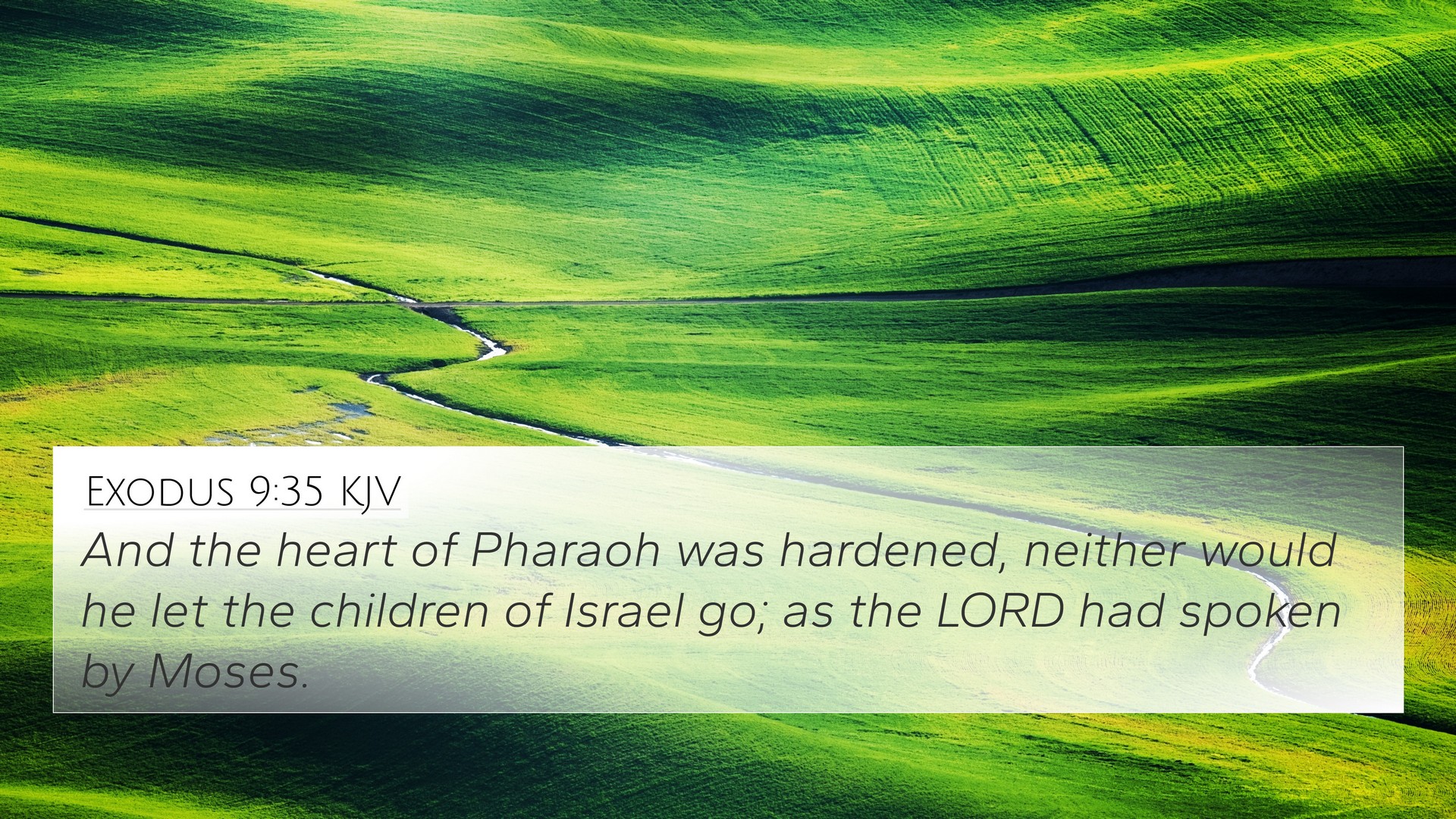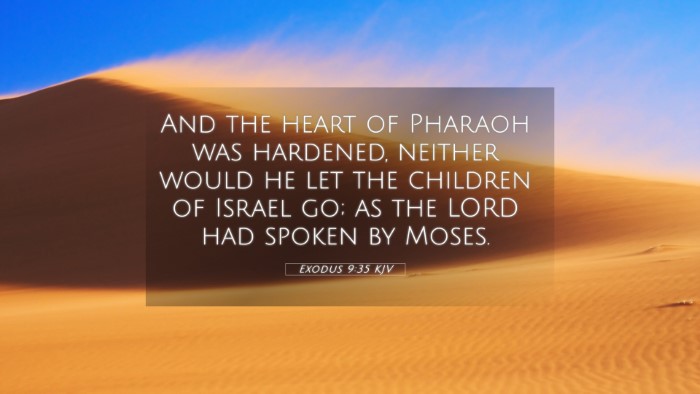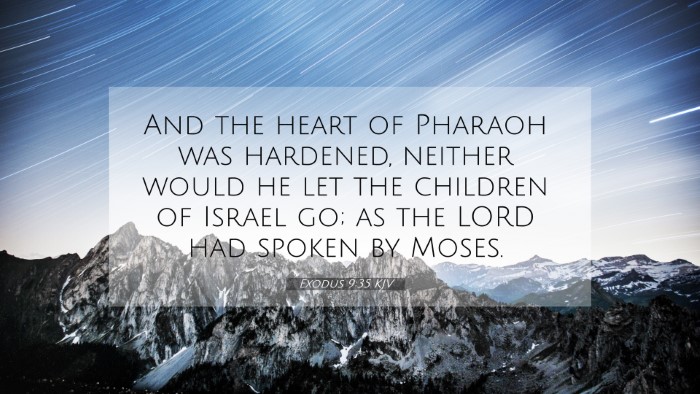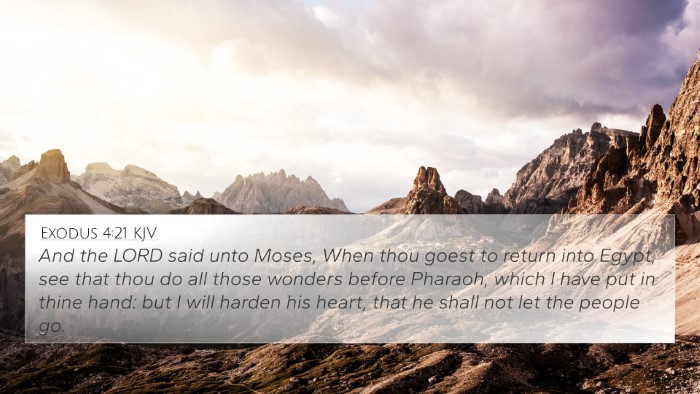Understanding Exodus 9:35
Exodus 9:35 states: “And the heart of Pharaoh was hardened, neither would he let the children of Israel go; as the Lord had spoken by Moses.” This verse highlights the judgment of God against Pharaoh and serves as a critical junction in the narrative of the Exodus. It emphasizes themes of divine sovereignty and the hardening of human hearts in relation to God’s will. The implications of this and its connections to other Scripture deepen our understanding of redemption, judgment, and divine authority.
Commentary Insights
Drawing from public domain commentaries, we can extract varied perspectives on the meaning and importance of this verse.
-
Matthew Henry:
Henry emphasizes the finality of Pharaoh’s decision and notes that God's hardening of Pharaoh's heart serves not only as a demonstration of God's power but also as a warning against pride and rebellion. By resisting God’s commands, Pharaoh seals his fate and demonstrates the futility of opposing divine will.
-
Albert Barnes:
Barnes highlights that this verse illustrates the progressive nature of Pharaoh’s hardening. Initially, Pharaoh hardened his heart by his own choices; however, as the plagues intensified, God's intervention became more pronounced. This notion underscores the relationship between human agency and divine sovereignty.
-
Adam Clarke:
Clarke points out that this specific hardening was a result of Pharaoh’s previous choices. Instead of repenting and submitting to God’s will, Pharaoh continues his defiance. Clarke further connects this to the idea that God's judgment is often a consequence of human decisions.
Bible Cross-References
Exodus 9:35 can be cross-referenced with several key verses to explore further connections:
- Exodus 7:3: God foretells that He will harden Pharaoh's heart.
- Exodus 8:15: Pharaoh hardens his heart after the plague of frogs.
- Romans 9:18: Paul discusses God's sovereignty in the hardening of hearts.
- 2 Thessalonians 2:10-12: The delusion of those who reject the truth.
- Hebrews 3:15: A warning against hardening one’s heart.
- Isaiah 63:17: The Lord’s question on why He has hardened the hearts of His people.
- Proverbs 28:14: The blessing of those who fear the Lord versus the consequences of a hardened heart.
Thematic Connections
The themes present in Exodus 9:35 resonate through both the Old and New Testaments, offering rich ground for inter-Biblical dialogue:
-
Judgment:
The theme of judgment is prevalent, as God’s judgment on Egypt mirrors the ultimate judgment that will take place at the end of time.
-
Divine Sovereignty:
This verse reiterates that God is in control and has the authority over nations and rulers.
-
Human Responsibility:
Pharaoh’s continuous refusal highlights the responsibility humans hold when confronted with divine revelation.
Conclusion
Understanding Exodus 9:35 is crucial for grasping the overarching narrative of redemption in Scripture. The interplay of God’s sovereignty, human choice, and the consequences that arise shape a profound theological framework. By utilizing tools for Bible cross-referencing, such as a Bible concordance, one can explore these connections more deeply, revealing how different scriptures support and illuminate each other.
Further Study
For those interested in a comprehensive study of the Bible and its themes, exploring cross-referenced themes and using the Bible cross-reference guide can enhance one's understanding of how different passages engage in dialogue with one another, contributing to a richer scriptural interpretation.



